Corporate results: DG Khan Cement earns Rs5.5b in fiscal 2013
Though below estimates, profits grow 34% on the back of higher cement prices and other income.
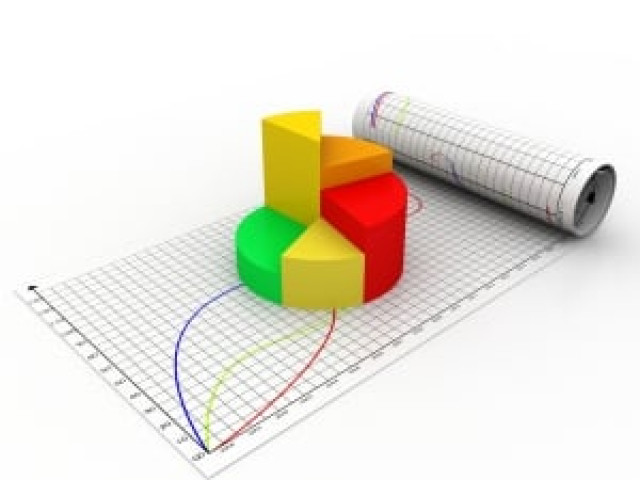
The company declared a final cash dividend of Rs3 per share. PHOTO: FILE
DG Khan Cement, which is part of the Nishat Group and one of the largest cement manufacturers in the country, posted an increase of 34% in its profits for fiscal year 2013 over the previous fiscal.
According to a notice sent by the company to the Karachi Stock Exchange, DG Khan reported a net income of Rs5.5 billion for the fiscal year 2013, compared Rs4.11 billion in fiscal 2012.
Talking to The Express Tribune, Summit Capital analyst Sarfaraz Abbasi said growth in earnings of 34% is not really great performance because the figure is below street estimates. Abbasi added that the main earning drivers were better cement prices and increase in other income.
The reported earnings were lower than estimates due to a higher than anticipated tax rate of 37.4% in the fourth quarter of fiscal 2013, Global Securities said in a note to its clients. The company declared a final cash dividend of Rs3 per share.

AKD Securities commented, also in a research note to its clients, that the profits of the cement producer were lower than the brokerage house’s estimates of Rs5.82 billion.
Topline Securities analyst Asad Siddiqui, commenting on the outlook, went on to say that analysts were upbeat for DG Khan Cement along with the whole (cement) sector, which is expected to grow in the ongoing fiscal year owing to strong demand and higher cement prices.
“I think the cement sector will successfully recover from all present uncertainties, and most cement companies will show growth in the ongoing fiscal year,” said Siddiqui.
In recent days, the KSE-100 Index has taken the news of Lucky Cement’s exit from the All Pakistan Cement Manufactures Association (APCMA) negatively as this may cause a fall in cement prices and ultimately affect the profitability of the sector. Despite all these developments, Siddiqui believes this uncertainty is temporary and it will not hit cement prices or the profitability of cement companies.
Revenues of DGKC clocked in at Rs24.91 billion during fiscal 2013, up 9% year-on-year (YoY). In spite of stable dispatches, this growth in revenues was likely supported by a 7% increase in cement prices during the year.

On a quarterly basis, the company posted a profit of Rs1.26 billion in the fourth quarter of the fiscal, down 5% quarter-on-quarter (QoQ).
Additionally, the federal excise duty was also cut by Rs100 per ton increasing the company’s retention prices further. On a quarterly basis, revenues grew 5% QoQ on account of 2% increase in local cement prices and a likely 6% increase in off-take in the quarter. The increase in dispatches was, however, slightly offset by lower retention prices of cement exports to Afghanistan due to severe competition.
DGKC’s gross margins expanded four percentage points to 37% during the year, owing to 20% decline in coal prices to $85 per ton and commencement of power from the waste heat recovery system at the company’s production plant.
On a QoQ basis, margins also recovered by 3pps to 38% in the last quarter due to lower electricity and gas costs over improved gas supply during the period to the company’s captive power plant. Moreover, the company’s plant maintenance shutdown scheduled during third quarter of fiscal also reduced margins for that period.
Finance costs showed a substantial decline of 40% YoY to Rs995 million during the fiscal 2013 due to significant deleveraging as the company reduced its debt by Rs1 billion during the period and a 350 basis point (bps) cut in the discount rate. On a quarterly basis, finance costs witnessed a 41% QoQ decline to Rs132 million in the fourth quarter due to lower short-term borrowing for the period.
Other income rose 23% YoY to Rs1.46 billion during the fiscal and 21% QoQ to Rs388 million during 4QFY13. This increase was likely due to higher dividend income generated from the company’s investment in Muslim Commercial Bank (MCB), which is also part of the Nishat Group.
Published in The Express Tribune, September 5th, 2013.
Like Business on Facebook, follow @TribuneBiz on Twitter to stay informed and join in the conversation.

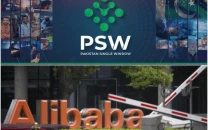
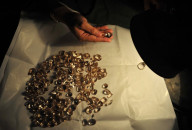
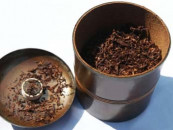

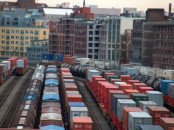
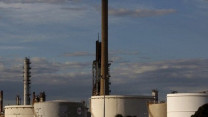












COMMENTS
Comments are moderated and generally will be posted if they are on-topic and not abusive.
For more information, please see our Comments FAQ